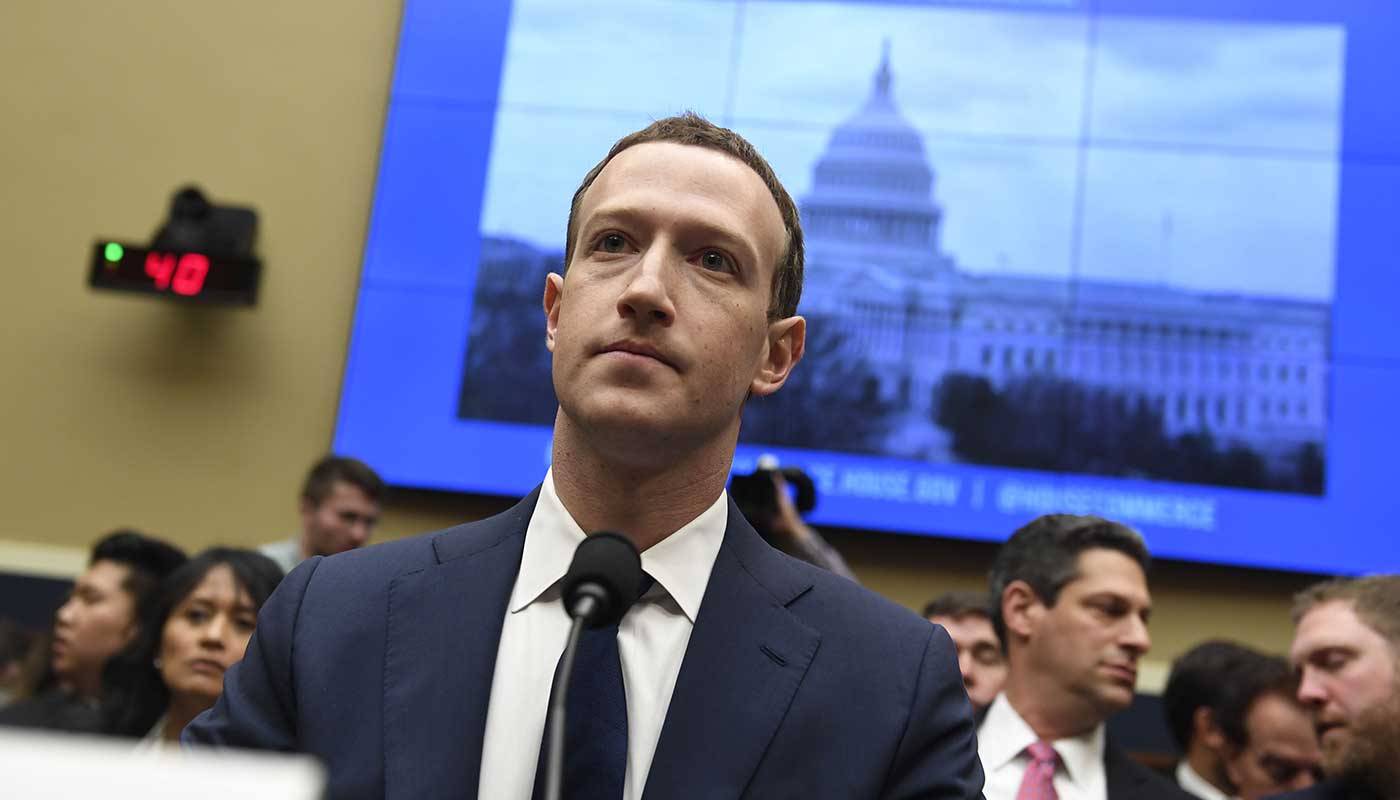Facebook admits collecting data from non-users
Mark Zuckerberg also says his own information was handed over to Cambridge Analytica

A free daily email with the biggest news stories of the day – and the best features from TheWeek.com
You are now subscribed
Your newsletter sign-up was successful
Facebook chief executive Mark Zuckerberg has revealed that the social media platform collects data of internet users who have never signed up for the company’s services.
The admission came during his second and final day of testimony before US Congress, during which he said Facebook collected the data of non-users for “security reasons”.
In response to a question from congresswoman Anna Eshoo, Zuckerberg also revealed that his own data had been handed over to political consultancy Cambridge Analytica.
The Week
Escape your echo chamber. Get the facts behind the news, plus analysis from multiple perspectives.

Sign up for The Week's Free Newsletters
From our morning news briefing to a weekly Good News Newsletter, get the best of The Week delivered directly to your inbox.
From our morning news briefing to a weekly Good News Newsletter, get the best of The Week delivered directly to your inbox.
Zuckerberg also “declined to give a commitment to change all users’ default privacy settings” in order to minimise the amount of personal data being harvested by the company, the BBC reports.
Congressman David McKinley surprised the Facebook chief by showing him an image of advertisements for illegal drugs that he said had been available on the platform as recently as Tuesday.
“Facebook is actually enabling an illegal activity and in so doing you are hurting people,” McKinley said.
CNN says a number of lawmakers questioned whether Facebook’s data policy with third-party apps “violated a 2011 agreement with the Federal Trade Commission after a prior privacy complaint”.
A free daily email with the biggest news stories of the day – and the best features from TheWeek.com
Zuckerberg’s appearance before the senate committees comes at a time of turmoil for the social media giant.
According to The Guardian, an apparent “loss of trust” in Facebook has prompted the EU commissioner for consumers and justice, Vera Jourova, to re-examine the voluntary code of conduct on the removal of hate speech, and potentially replace it with “legislation and heavy sanctions”.
Jourova is set to meet with Facebook’s chief operating officer, Sheryl Sandberg, later this week to discuss the Cambridge Analytica scandal and the company’s evolving response to the crisis.
-
 The ‘ravenous’ demand for Cornish minerals
The ‘ravenous’ demand for Cornish mineralsUnder the Radar Growing need for critical minerals to power tech has intensified ‘appetite’ for lithium, which could be a ‘huge boon’ for local economy
-
 Why are election experts taking Trump’s midterm threats seriously?
Why are election experts taking Trump’s midterm threats seriously?IN THE SPOTLIGHT As the president muses about polling place deployments and a centralized electoral system aimed at one-party control, lawmakers are taking this administration at its word
-
 ‘Restaurateurs have become millionaires’
‘Restaurateurs have become millionaires’Instant Opinion Opinion, comment and editorials of the day
-
 Epstein files topple law CEO, roil UK government
Epstein files topple law CEO, roil UK governmentSpeed Read Peter Mandelson, Britain’s former ambassador to the US, is caught up in the scandal
-
 Iran and US prepare to meet after skirmishes
Iran and US prepare to meet after skirmishesSpeed Read The incident comes amid heightened tensions in the Middle East
-
 Israel retrieves final hostage’s body from Gaza
Israel retrieves final hostage’s body from GazaSpeed Read The 24-year-old police officer was killed during the initial Hamas attack
-
 China’s Xi targets top general in growing purge
China’s Xi targets top general in growing purgeSpeed Read Zhang Youxia is being investigated over ‘grave violations’ of the law
-
 Panama and Canada are negotiating over a crucial copper mine
Panama and Canada are negotiating over a crucial copper mineIn the Spotlight Panama is set to make a final decision on the mine this summer
-
 Why Greenland’s natural resources are nearly impossible to mine
Why Greenland’s natural resources are nearly impossible to mineThe Explainer The country’s natural landscape makes the task extremely difficult
-
 Iran cuts internet as protests escalate
Iran cuts internet as protests escalateSpeed Reada Government buildings across the country have been set on fire
-
 US nabs ‘shadow’ tanker claimed by Russia
US nabs ‘shadow’ tanker claimed by RussiaSpeed Read The ship was one of two vessels seized by the US military